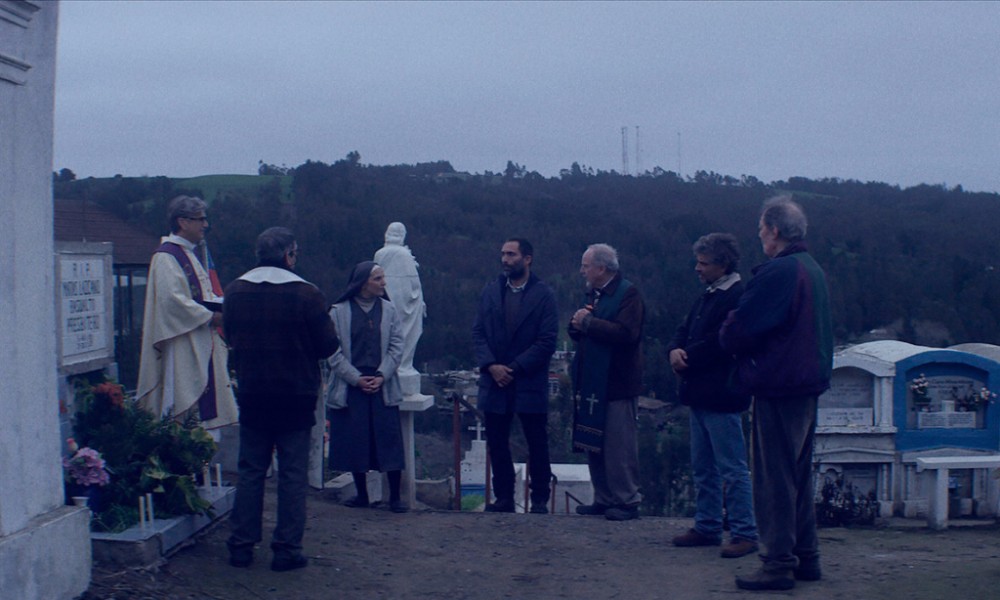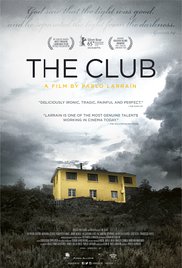The Club

Chile’s pre-eminent filmmaker Pablo Larrain’s works (Tony Manero, Post Mortem, No) have focused on violence and corruption in Chile during the dictatorship of Pinochet; his latest, The Club, is a remarkable and emotionally disturbing film that echoes these themes in the context of the Catholic Church. Written by Guillermo Calderón, Larraín, and Daniel Villalobos, The Club‘s thesis is the problem of paedophilia among Catholic priests, and moral corruption and unscrupulousness, fuelled by institutional appetites for power.
“God saw the light was good and he separated light from darkness” appears on-screen as The Club opens. A man trains his dog on a beach with a toy it cannot reach, and a woman cleans the deck surrounding a house by the ocean, setting a symbolic tone of frustration resulting from priesthood celibacy and an obsession with erasing evidence of criminality.
At first presented as benign, if cheerless, characters are gathered together in domestic normalcy, enjoying a win from racing their greyhound, while the true nature of the situation in The Club unfolds. The house is a home for exiled criminal priests guilty of paedophilia and other transgressions, such as selling babies. The plot develops and culminates in shocking behaviour and cruelty, which could seem extreme, even absurd, but works here to illustrate the lengths to which institutional authority will go to maintain power.
The film’s cinematography and soundtrack are exceptional, with breathtaking smoky visuals, deep classical cello sound, and grey skies that provide an atmosphere of melancholia in a profoundly troubling narrative. The slight haziness highlights an ambiguity surrounding religious fervour and evil acts – a delusion of goodwill amid corruption and violence. Background noise from within the house recalls a ship in a storm, echoing tension and turmoil.
Exceptionally portrayed, Larrain’s characters are likewise ambiguous and deeply human in their frustration, confusion, and self-deception. Although there is a clear theme of corruption of power, the individuals portrayed are complex and emotional. Their hypocrisy in using religion to justify moral transgressions, born of unnatural celibacy and moral confusion, is reinforced by the church’s cover-ups.
Although intensely, viscerally disturbing, extremely sexually graphic, and upsetting in its violence, The Club is an outstanding, visually beautiful film with a profound message.
Catherine Sedgwick
The Club is released nationwide on 25th March 2016.
Watch the trailer for The Club here:
























Facebook
Twitter
Instagram
YouTube
RSS